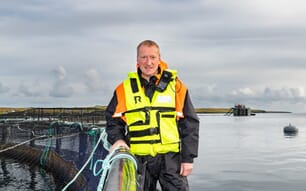Cermaq became the first salmon producer in Chile to achieve Aquaculture Stewardship Council (ASC) for responsible aquaculture last week.
The certification was achieved at Cermaq Chile’s site Unicorno Sur, located in the region of Magallanes (Region XII) in the southern part of Chile.
In Denmark, Danforel’s Christiansminde freshwater trout farm also became the first farm to be certified by the ASC Freshwater Trout Standard.
German supermarket chain REWE also announced it is increasing its range of ASC labelled seafood with the addition of its Goldlocke product, which is made from ASC certified tilapia.
However, Marine Harvest Canada (MHC) voluntarily withdrew from its ASC certification process last week after the accidental drowning of six California sea lions at its Shelter Bay salmon farm near Port Hardy BC.
"Marine Harvest is very disappointed by the demise of these sea lions but affirms that its commitment to operate in a manner that avoids harm to sea lions remains in force," said Clare Backman, Marine Harvest’s Public Affairs Director.
In fisheries news, Oceana has gathered evidence of fishing boats using illegal driftnets in southern Italy’s port of Bagnara Calabra.
“The illegal use of driftnets has been plaguing Italy for over 30 years. This destructive gear catches highly migratory species, cetaceans and sea turtles, and threatens traditional, and more selective harpoon fisheries in Sicily and Calabria,” stated Xavier Pastor, Executive Director of Oceana in Europe.
“Oceana is concerned about this grave situation, and about the lack of awareness from the Italian authorities, who consider this issue to be closed”.
Alaskan Native leaders, commercial fishermen, investors, jewelers and conservation organizations have applauded the Environmental Protection Agency for its Proposed Determination - a detailed plan for restricting mine waste disposal from the proposed Pebble Mine in Alaska’s Bristol Bay watershed.
The proposal will help protect the largest and most productive wild salmon fishery in the world, supplying half of the world’s supply of wild sockeye salmon and generating 14,000 annual jobs and over $450 million in annual revenue.



